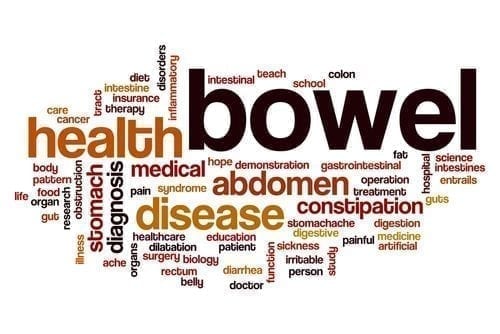
This post discusses how SSA will evaluate your claim for Social Security Disability for Short Bowel Syndrome. If you or someone you care for is unable to work due to Short Bowel Syndrome, read on.
The Bishop Law Firm offers free case reviews, and we do not get paid unless you win. You can call us at 919-615-3095 or start your free case review online now.
What is Short Bowel Syndrome (SBS)?
Short bowel syndrome is a condition in which your body is unable to absorb enough nutrients from the foods you eat because you don't have enough small intestine.
While the small intestine is the primary location for Short Bowel Syndrome, the large intestine can also be affected (via NORD).
The small intestine is where most digestion occurs. A portion of your small intestine may need surgical removal due to various reasons (including trauma), or you may have been born with damaged or missing intestines, according to The Mayo Clinic.
Surgical removal of the small intestine can be a form of treatment for other digestive ailments, such as Crohn's disease. Via WebMD.
If a stricture or perforation develops in the small intestine due to inflammation from Crohn's disease, a small bowel resection must occur to prevent blockages and infection.
Resection of the short bowel can be a single massive resection or multiple, more minor resections.
Depending on the individual, multiple smaller recesions over time may allow the intestine to adapt and retain more of the ability to absorb nutrients (via NIH).
Unfortunately, while the resection can alleviate one issue, it can result in short bowel syndrome, which comes with symptoms according to the Crohn's Colitis Foundation.
Symptoms
Common symptoms include chronic diarrhea, dehydration, weight loss, malnutrition, fatigue, abdominal pain, vomiting, bacterial infections, bloating, and weakness, to name a few (Crohn's Colitis Foundation).
The severity of symptoms is related to the amount of the small intestine that requires removal. For someone who has undergone an extensive resection (leaving less than 60 cm of small bowel), the above symptoms will be more challenging to manage and work through (NIH).
X-rays (including a barium swallow) or other imaging studies are used to diagnose small bowel syndrome. Also, blood or stool tests can demonstrate diminished nutrient levels.
Treatment
There is no cure for short bowel syndrome, but medications, surgery, and intestinal transplant are treatment options via the NIH.
Patients can use daily parenteral nutrition or a feeding tube to maintain proper nutrition.
Medications to reduce symptoms are prescribed.
Some examples are Imodium (for diarrhea), Gattex (stimulates intestinal repair), and proton pump inhibitors (Prilosec is an example) to reduce acidity (via the Cleveland Clinic).

Social Security Disability Benefits
There are two types of benefits that Social Security offers for people with disabilities: Social Security Disability Insurance Benefits (SSDI) and Supplemental Security Income (SSI).
SSDI
SSDI benefits are based on the work that you have done in your life. Generally, you must have worked 5 of the last 10 years to be insured for disability.
SSDI is essentially the same amount of money that you would receive if you waited until full retirement age to retire, but it is paid to you early due to disability.
SSI
SSI benefits are a need-based program for those who have not worked long enough to be eligible for SSDI.
Supplemental Security Income comes with income, asset, and resource limitations, which are not present with SSDI applications.
The Five-Step Sequential Evaluation
You must be found disabled under Social Security's Five-Step Sequential Evaluation before you are entitled to either benefit:
- Step 1 – Are You Working? The Social Security Administration defines work as “Substantial Gainful Activity” (SGA). SGA is roughly defined as work from earnings that average more than $1,620 per month (as of 2025). If you can perform substantial gainful activity, you generally will not qualify for disability benefits.
- Step 2 – Is Your Condition “Severe”? Severity is key when determining what qualifies as a disability. Severe is defined by the Social Security Administration as: your condition must interfere with basic work-related activities for your claim to be considered.
- Step 3 – Is Your Condition on the List of Disabling Conditions? The Listings are often challenging to meet, and their interpretation is not always consistent with a shared reading approach. If you meet a listing, you are gravely ill. The listings are here.
- Step 4 – Can You Do the Work You Did Previously? The Social Security Administration will look at your work history and determine if it was sedentary, light, medium, or heavy. They will also evaluate the skill level: unskilled, semi-skilled, and skilled. For instance, an attorney would be sedentary skilled work. The Dictionary of Occupational Titles is here.
- Step 5 – Can You Do Any Other Type of Work? If the Social Security Administration determines that you can no longer perform your previous duties, they then assess whether you can still perform other tasks. This step is where the “grids” come into play. The grids are the Medical-Vocational Guidelines. The grids are only for exertional impairments. The grids do not consider non-exertional impairments. If you are capable of any other work, you will be found not disabled. Read The Grids and Your Social Security Disability Case.
Read more at Social Security Disability Attorney.
Is Short Bowel Syndrome a disability?
As with all claims for Social Security Disability benefits, the severity of your symptoms is more important than the name of your disease.
You must have medical documentation (medical records from a treating doctor) demonstrating that your symptoms significantly impact your ability to work (engage in substantial gainful activity).
Listing 5.07
The Social Security Administration can evaluate Short Bowel Syndrome under Listing 5.07, Intestinal Failure.
Social Security requires a copy of the operative report that includes details of the surgical findings or postoperative imaging indicating a resection of the small intestine.
To meet this listing, a patient requires dependence on daily parenteral nutrition via a central venous catheter for at least 12 months.
In my experience, most clients do not meet this listing because it describes an extreme case.
Combination of Impairments
Even if you do not meet Listing 5.07, you may still be found disabled based on the combination of your impairments. Short Bowel Syndrome often occurs with other illnesses, like Crohn's, Necrotizing enterocolitis, radiation enteritis, and vascular disease.
If the underlying disease was severe enough to necessitate a bowel resection, your symptoms from that impairment should be considered by SSA when determining if you are disabled.
Based on the reports of my clients, the main symptom of Short Bowel Syndrome is diarrhea, which is unpredictable and can be uncontrollable.
Recurring difficult trips to the restroom with cramping pain can leave you exhausted.
Work requires regular attendance and the ability to perform required duties.
If you are unable to go to work or stay on your job due to the symptoms of Short Bowel Syndrome, you may be found disabled.
Also read Social Security Disability Conditions to explore other conditions that affect your ability to work.
Do you need a Social Security Disability Attorney?
If you or someone you care for is unable to work, apply for Social Security Disability for Short Bowel Syndrome as soon as possible and call The Bishop Law Firm.
Attorney Kimberly Bishop, our owner, has practiced Social Security Disability since 2009 and is a North Carolina Board Certified Social Security Disability Specialist.
We do not get paid unless we win. We offer free case reviews by phone at 919-615-3095, or you can start your free case review online now.

